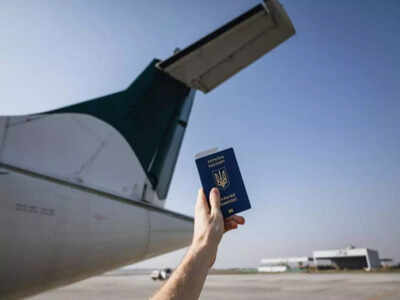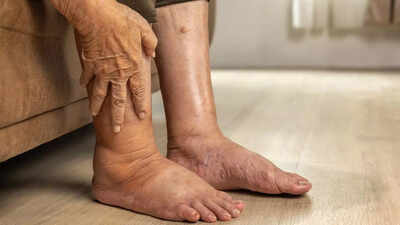World’s 9 weakest passports in 2025: Countries with the least travel freedom |

A passport is an important travel document for those who wish to explore other countries. It allows people international travel freedom. But the ranking of passports also matters. If a country’s passport is strong, the residents can often travel visa free or visa-on-arrival facilities to several nations. But when a country’s passport is weak, it only creates issues in obtaining a visa and also lacks several other powers that come along with strong passports.According to the latest (2025) Henley Passport Index ranking, the passport of Afghanistan is the weakest and grants visa-free access to only 25 countries. On this note, let’s have a look at 9 weakest passports in the world.Afghanistan (Rank 104, Score 25)

Afghanistan ranked 104 on the list, making its passport the weakest in the world. Only 25 countries are accessible visa free for an Afghani resident. The main reason behind this would be prolonged conflict, political instability, and limited diplomatic reach. For Afghanis, most international travel requires formal visa applications, and involves long processes. The outcome is also not assure.Syria (Rank 103, Score 29)

Syria is on number two on the list. Its low ranking is shaped by years of civil war and political instability. Only a few countries grant visa-free or visa-on-arrival access to Syrians. The passport holders also have to face severe entry requirements. Security is the main concern here.Iraq (Rank 102, Score 31)

Iraq’s passport also offers limited visa-free access. It is because of political instability, security issues, and the country’s changing diplomatic relationships. Iraqi passport holders commonly need to apply for visas in advance. Pakistan (Rank 101, Score 33)

Pakistan has also a low ranking because of its ever-changing political scenario, security, and cross border tensions. Pakistani passport holders often have to go through lengthy visa procedures, their rejection rate is also high. Yemen (Rank 101, Score 33)

Yemen has a bad security situation, the state of the country is greatly affected by political instability. The passport has limited reach, leaving many destinations off-limits. Humanitarian crises are also there. Outside travel requires careful planning and prior approvals.Somalia (Rank 100, Score 34)

Somalia’s passport is affected by long-standing political instability. There are security challenges too and a limited diplomatic network. Many countries need Somalis to obtain visas before travel. Progress in governance and expanded bilateral relations is needed.Nepal (Rank 99, Score 38)

Nepal’s low rank reflects a passport that Nepalis still require visas for many popular destinations. They might enjoy easier travel within South Asia and some neighboring countries, but long-haul travel involves advance visa applications. Palestinian Territory (Rank 99, Score 38)

Palestinian territories also face a lot of issues. There are diplomatic and recognition issues. Passport holders require lengthy full visa processing. Geopolitical constraints and limited state recognition continue to restrict the mobility of many Palestinians.Libya (Rank 98, Score 39)

Libya’s passport has slightly higher access, yet remains burdened by political instability and security issues. Libyans frequently face prior-visa requirements and unpredictable processing times. Any sustained improvements in political stability and international relations would likely be the principal route to expand Libyan citizens’ travel freedoms.These nine weak passports of the countries only reflect how security concerns, political instability, cross border tensions, and diplomatic relationships directly affect not only international but everyday freedom to travel. It’s a difficult travel situation for the citizens of these nine nations. With lengthy visa processes and no surety of obtaining one, international mobility is often a matter of careful planning and several official approvals. It also limits work options, education, or family visits abroad.






